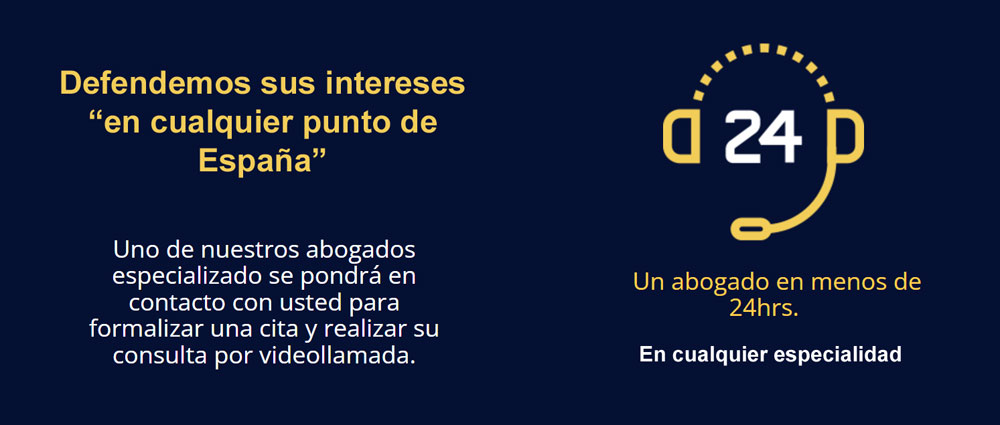
Table of contents
Donating money to children is more than an act of love; it is a support for adolescents to achieve their goals or to help them develop in the future. That said, donations can sometimes be made, but are not always required to be declared or pay taxes. If the individual situation is not properly analysed, it can be much more expensive than imagined, and can even lead to major problems. It is therefore advisable to consult a family lawyer who will advise you to the best of his or her ability in order to avoid any unpleasant surprises.
What is a donation?
A donation is an act of generosity where one person gives to another who accepts something without asking for anything in return. Therefore, as long as there is no benefit of any kind to compensate for that event, it is a donation.
Is it necessary to formally donate to a child in front of a notary public?
It is not necessary to assign a public deed, but a private document is sufficient. A public deed is also necessary in order to receive certain tax benefits.
According to the law, any gift, regardless of the amount, must be declared. This includes all gifts to children and relatives. In practice, however, the Inland Revenue does not handle donations of these minimum amounts; however, it does require banks to report any movement over €3,000 and when using €500 banknotes in their operations. It should be clear that if the government wants to, it has the right to reclaim taxes on small donations within 4 years.
What taxes are paid on these donations?
Those who donate, in this case the parents, must pay tax on the amount donated. The percentages may vary from one autonomous community to another. The person receiving the donation, in this case the child, is obliged to pay inheritance and gift tax. The tax office offers a 30-day cancellation period.
Its liquidity will be shown in the corresponding office according to the municipality of the recipient of the donation. However, if the donation you receive is a real estate property, it must be shown in the autonomous community in which it is located.
How much tax do I have to pay on donations?
Each autonomous community has its own taxes, many of which are drastically reduced as they pass from parents to children. To obtain this benefit, a public contract must be involved. Therefore, gift and inheritance taxes can vary widely depending on where you live.
What happens when you donate to a married child?
A very common occurrence is for parents to donate money to their children to help them buy a nice house.
In this case, everything must be registered in the presence of a notary public so that whatever is purchased with the donated funds is registered as private property. Otherwise, it will be considered marital property.
Can I donate money to my child without reporting it?
An alternative to avoid filing and paying taxes is an interest-free loan. No tax or brokerage fees are payable on this type of transaction. For this, the following information must be provided:
- Father or mother: Include the agreed capital payment in the purchase deduction base.
- Child: File the Transfer Tax (ITP), but pay nothing.
Also included as a condition of the interest-free loan is the repayment of the funds and their submission to the Ministry of Finance. Therefore, the loan contract between private individuals must contain the following information:
- The date and place where the loan from the parent to the child takes effect.
- Data enabling the identification of the parties.
- Amount borrowed.
- Term of the loan and method of repayment.
- Indicate an interest-free loan.
The loan contract is formalised in a public deed before a notary. In addition, the ITP 600 Form must be completed and filed in the corresponding Autonomous Community.
Requirements to obtain a reduction when giving money to children
This donation entitles the property to a 95% reduction in value. If you want to receive the discount, a number of requirements must be met:
- The maximum amount received must be 60,000 euros. However, if the beneficiary has a disability of 65% or more, this amount will be 120,000 euros.
- Transactions must be made by bank transfer between first-degree relatives.
- Be under 36 years of age and the total taxable base of your last personal income tax return cannot exceed 36,000 euros.
- Formalise financial donations as a public covenant.
- The deed will specify that the amount of the donation received will be used for the purchase of the first habitual residence.
- The amounts must be declared within 30 working days, counting from the day following the donation.
You can contact a family lawyer from our firm to make any enquiry related to this issue. We are available online anywhere in Spain.

"Anywhere in Spain"
With our online appointment system you will have immediate advice without the need for face-to-face visits or travel.
One of our lawyers specialized in your area of interest will contact you to formalize an appointment and make your consultation by video call.


Add new comment